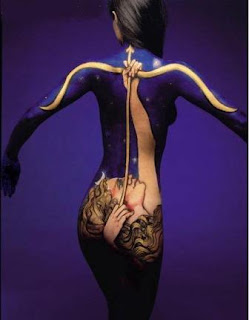Chrissy and Curiosity Killer both wrote about the Rape of Nanking in their respective blogs. People placed comments on their blogs about the history of their families who went through World War II. And, I thought, well, that is just eerie... my mom and I have been contemplating about documenting my grandfather's memoirs for the last couple of years. After reading two Western bloggers' points-of-view about that era, I thought I could start the memoirs here.
Grandfather Geoffrey (let's call him GG from now on, since his name kinda takes a long time to type) was born in China's Fookien province, but was sent here to the Philippines in the 1920's, together with his adoptive parents. GG's folks wanted him (the last of a brood of three) to escape the opium obsession that his older brothers had already succumbed to. He grew up in the city of Manila, but moved to Cagayan de Oro City in northern Mindanao, to avoid detection by the immigration office. By the 1940's, GG had gone back to China, gotten his college degree, and lived again in Cagayan de Oro as a well-respected teacher of English (of all academic subjects to teach, huh?). When war time came, GG found himself using his academic and multi-lingual knowledge to great use. He eventually became a translator for both Japanese and American forces, during friendly and/or hostile negotiation situations. GG knew how to speak a little bit of Japanese - he had gone there already once before - but his main competitive advantage was that he was the only one in the entire city of Cagayan de Oro who can write words that the Japanese could understand and comprehend. You see, even though the Japanese had their own written language, kanji, they could still read and understand the mainland's language, since it was the basis of their mother-tongue. GG was an asset to the fighters in his area, and his "nerdy" skills went to very, very good use.
His war time memories are now hazy. When I ask him about them today, he flicks his hand and pooh-poohs, "I don't remember much anymore, and at this point in my life, I want to remember good stuff. I won't forget the bad stuff, but it's better for me to think of better things today, rather than concentrate on the 'bad luck' I've gone through before." *Sigh* I can't blame him.
The stories of Nanjing are not so easy to read, much less to recall and remember. Similar stories abound here in the Philippines. There are, in fact, still small groups of Filipino women, now octogenarians and nonagenarians (people who are of my GG's age), so called "comfort women" under the Japanese occupation, who call for justice. Apologies have repeatedly been asked for, but so far, nothing acceptable has been given. Their lives have been hell. Is this the legacy of the 1940's?
Subscribe to:
Post Comments (Atom)


3 comments:
Thanks for bringing it to your post as well, Kim.
CK, your entry really spawned a lot of other entries and comments. That was what got me going. Thanks for bringing it up in the first place! Come back often, ok?
Oh, wow, Kim! Thanks for this post. My grandmother mentioned "Comfort Women" before. My grandfather was instrumental in helping the US army because he was a government worker and I think this is why he was lined up in the plaza for an execution. Thank goodness for the quick thinking of a villager who burnt his own house down to deter the Japanese from shooting!
I'm also thinking that if the Japanese had "Comfort Women" while they occupied the Phils, then that may be why some middle aged Japanese businessmen always tried to 'negotiate' a date with me when I was there. Oh, yucky! When they asked my nationality, and received an "I am Canadian", they insisted that I was filipina and thought I was a 'dancer' (among other things). I realize it's impossible to undo the history and the past of people's cultures, but one can always try to change the future through education. Hopefully people will learn from the past...
Post a Comment